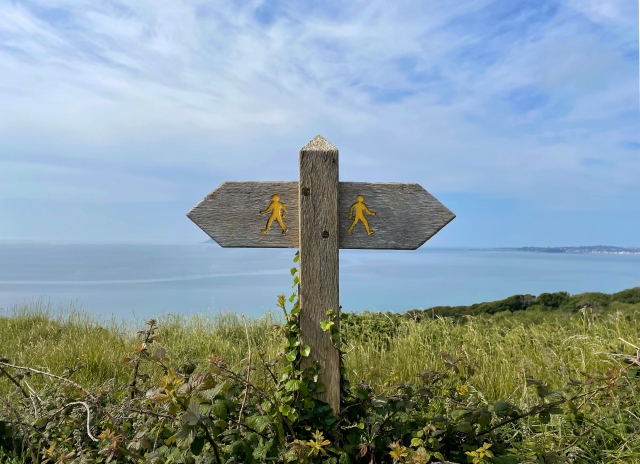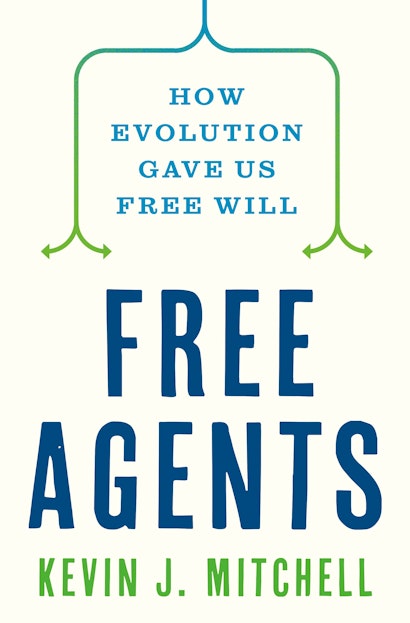Do you ever wonder if you’re really in charge of your own actions? We certainly seem to be capable of making decisions and guiding our own behavior, for our own reasons. At least, it feels that way most of the time. But there are also occasions when we’re not sure why an idea popped into our heads, when we wonder why we did something, or even wish we hadn’t. Those moments can prompt the Freudian intuition that a lot of our behavior is really directed by subconscious desires and motivations. Where does that leave “us”? Are we still in the driver’s seat? Or are we being taken for a ride?
In recent years, more threats to our notions of agency and free will have sprung up, from diverse areas of science. Behavioural genetics has shown that our psychology is shaped by our genetic make-up and the particular way our brains developed. If we come prewired in ways that influence our decision-making, how free can we really be? Neuroscience goes a step further, revealing the underlying brain regions and neural circuits involved in making decisions and selecting goals and actions. Those mechanisms can even be manipulated, in humans and other animals, to drive specific behaviours. With this accumulating evidence, it’s hard to escape the notion that it all really is just mechanism. How do our ideas and beliefs and desires and intentions figure into that picture, if the causal work is all being done by neurons firing in complicated circuits?
The physicists, meanwhile, may laugh even at the notion that neural circuits are the level where the causal action is. After all, brains and neurons are physical objects made of molecules and atoms and particles and, ultimately, quantum fields. Those elements are subject to physical forces, like all other forms of matter. Many argue that the way the whole system evolves through time is fully determined by the way those low-level interactions play out, leaving no room for anything to be up to us.
All this evidence has led many scientists and philosophers in recent years to declare: “free will is an illusion!” They contend that we are not, in fact, in charge of our own actions, that we don’t really exercise choice and make decisions, and, consequently, that we should not be held morally responsible for our own behaviour.
I think there is a way to overcome these challenges without recourse to some mystical notion of an immaterial self or spirit that somehow pushes physical stuff around. First, the threat from physical determinism – the idea that the laws of physics ensure only one future is possible – is dissipated by physics itself. Though there are many ways to interpret it, the evidence for fundamental indeterminacy at the lowest levels is extremely strong. Even the idea that “classical” systems (i.e., big systems with lots of elements) are deterministic rests on questionable assumptions. The upshot is that the way things will go in the future is under-determined by the low-level physical state at any moment.
That doesn’t produce free will by itself but it crucially opens the door for the way systems are organised to have some causal efficacy. Living beings can be thought of as sets of dynamic processes, organised in a certain way, and persisting through time. The way those processes are configured – the map of all the relations between all the elements – is what allows them to be self-sustaining, by collectively constraining their own physical components.
When conditions change, those processes have to be reconfigured, in order for the whole entity to keep persisting. Even the simplest organisms thus evolved control systems that can monitor their own state and the state of the world and make adjustments as necessary. One way to do that is by moving around in the world, to find conditions that are more amenable. With the evolution of nerves and muscles, those control systems became much more sophisticated, enabling proactive management of behavior over much longer timeframes.
This entails cognition, enabled by internal patterns of neural activity that mean something to the organism. Such patterns may represent, for example, the presence of some object in the world, or an internal state, a current goal, or a possible action. The active patterns are interpreted based on the stored configuration of the connections between neurons in different parts of the brain, which in turn are constantly tweaked and readjusted as the animal learns from experience. The processes of cognition are thus mediated by the activities of neurons in the brain, but are not reducible to those activities or driven by them in a mechanical way. What matters in settling how things go is what the patterns mean – the low-level details are often arbitrary and incidental. Organisms with these capacities are thereby doing things for reasons – reasons of the whole organism, not their parts.
That gets us quite far, but leaves the tricky problem of biological fatalism. Organisms may be causal entities in the world, but you might still say that the way they behave at any moment is determined by their current configuration. A common claim of free will skeptics is that we, ourselves, had no hand in determining what that configuration is. It is simply a product of our evolved human nature, our individual genetic make-up and neurodevelopmental history, and the accumulated effects of all our experiences. Note, however, that this views our experiences as events that have happened to us. It thus assumes the point it is trying to make – that we have no agency because we never have had any.
If, instead, we take a more active view of the way we interact with the world, we can see that many of our experiences were either directly chosen by us or indirectly result from the actions we ourselves have taken. Not only do we make choices about what to do at any moment, we manage our behaviour in sustained ways through time. We adopt long-term plans and commitments – goals that require sustained effort to attain and that thereby constrain behavior in the moment. We develop habits and heuristics based on past experience – efficiently offloading to subconscious processes decisions we’ve made dozens or hundreds of times before. And we devise policies and meta-policies – overarching principles that can guide behaviour in new situations. We thus absolutely do play an active role in the accumulation of the attitudes, dispositions, habits, projects, and policies that collectively comprise our character.
All of that may be seen as constraining our freedom at any moment, and that is true, but it is precisely the continuity of those constraints through time that constitutes our selves. What else would it mean to be you except continuing to be like you?
Moreover, we have additional abilities, perhaps unique to humans, which mean our behaviour is not in fact completely determined by all those constraints at any moment. As our brains expanded in evolution, we developed more levels of the hierarchy of the cerebral cortex. These give us capacities for metacognition, for introspection about our own cognitive processes, for thinking about our thoughts and reasoning about our reasons. We really can deliberate and those deliberations really can settle what we do.
There is thus a way to surmount the metaphysical challenges to free will. Nature has already found it – evolution has led to the emergence of organisms that are capable of acting in the world, not just as collections of atoms, but as autonomous agents. By tracing that evolutionary trajectory, we can see how living organisms came to have causal power in their own right, without violating the laws of physics, and without the need for any mystical or supernatural forces at play.
Kevin J. Mitchell is associate professor of genetics and neuroscience at Trinity College Dublin. He is the author of Innate: How the Wiring of Our Brains Shapes Who We Are (Princeton) and runs a popular blog, Wiring the Brain. His work has appeared in publications such as Scientific American, the Guardian, and Psychology Today.

